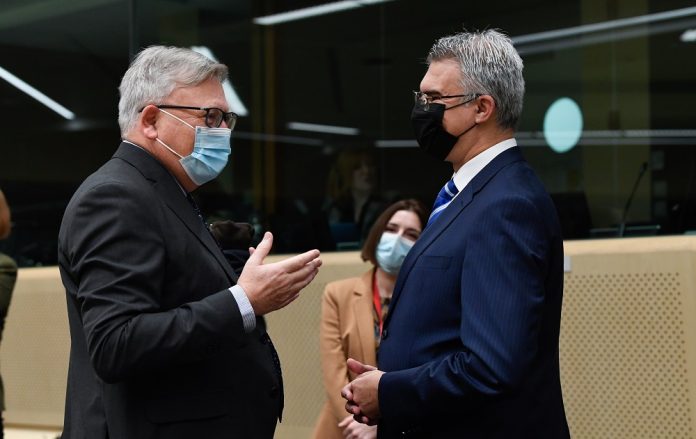Minister within the Office of the Prime Minister Carmelo Abela participated in a meeting of the Employment, Social Policy, Health and Consumer Affairs Council (EPSCO), in Brussels. At this meeting, several topics were discussed including the Minimum Wage Directive and the Payment Transparency Directive.
In his intervention on the minimum wage, Minister Carmelo Abela said that Malta always insisted that workers should have an adequate and decent wage. The Minister went on to say that Malta has always given its support to the objective of this directive, which also promotes collective bargaining which leads to an improvement in workers’ conditions.
Minister Abela, also responsible for the social dialogue in our country, reiterated how social dialogue is functioning well between the social partners, and that it has become part of the social fabric of the country. “Malta is constantly working to ensure an inclusive labour market, while improving the economic and social spheres,” said the Minister.
During the meeting, Minister Abela expressed his appreciation that a particular effort by the Presidency led to amendments in the directive as raised by member states, including Malta. This achieved compromise could lead to this directive to move to the next phase. To this end, he augured that the incoming presidency would act on what was agreed so that support for this directive would remain strong.
During the Council meeting, payment transparency, and the reduction of the gender pay gap, as well as the promotion of equal pay for equal work, were also discussed in principle.
The Minister stated that “Gender equality is at the top of the Maltese government’s agenda.” Malta therefore welcomes these initiatives by the Commission to further promote and address gender equality across the EU, with Malta thanking the Presidencies for their work in reaching a compromise in this directive as well. Accordingly, the Minister said: “We welcome safeguards that reduce the burden on small and micro companies, while still ensuring that certain measures are taken to achieve the purpose of the proposed directive.”
Finally, in the debate on ‘Towards a Europe of Equality’, Minister Abela stated that although this topic has been on the European agenda for many years, challenges still exist in every EU member state. Therefore, the Minister insisted that: “each country should take measures to encourage women, of all ages and in all walks of life, to participate in education and training, and that if they wish, they enter and remain in the world of work.” He explained how this can be done with several measures to promote work-life balance; and that because of these and other measures, wage inequalities will be reduced.
In his conclusion, Minister Carmelo Abela pointed out that in recent years Malta has introduced several schemes and initiatives that have addressed a number of inequalities, while the number of women in the world of work has increased substantially.










